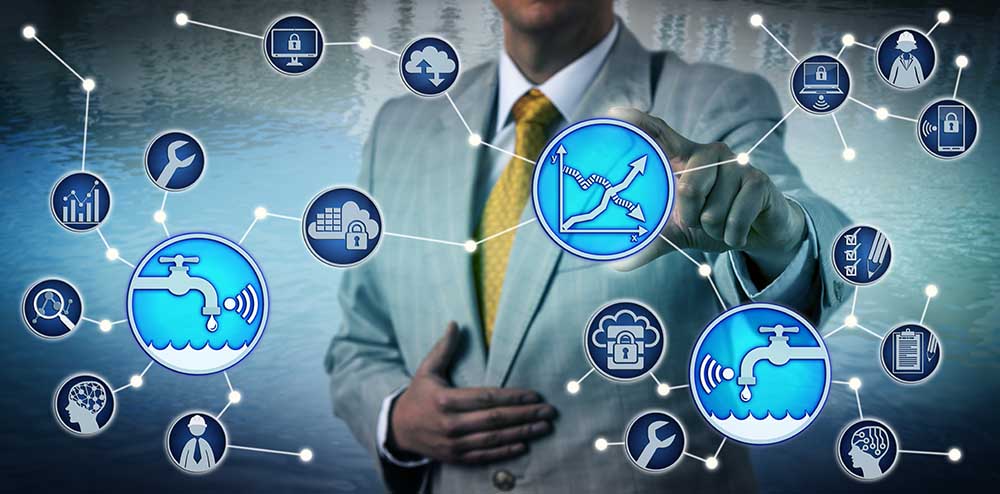Darren Oxlee, Chief Technology Officer and Director at Utility Systems, looks at the future of smart water metering in 2019.
Driven by the requirement to improve operational efficiencies and revenues, cut down on wastage, and enhance customer service, water utilities around the world are turning to Advanced Metering Infrastructure (AMI) – including smart meters – and the trend is set to accelerate in 2019.
Utilities are under increasing financial pressure from non-technical water losses – including potable water lost in the system through leaks – and inefficient revenue recovery that results in millions being lost due to incorrect billing and theft.
Harnessing technology such as the Internet of Things (IoT), connectivity and data analytics not only helps better manage infrastructure and reduce losses but will also bring changes to the way in which utilities currently operate. Here are five things utilities must consider in their quest to become smarter:
Broader industry partnerships – among the drivers of growth in AMI include private sector companies introducing innovative products and solutions that are redefining smart metering, as well interest from large telecoms operators who are recognising the opportunity to add additional services to their current offerings.
Infrastructure and maintenance – smart metering will enable far more accurate, real-time data monitoring, helping utilities reduce the time taken to identify and fix leaks by flagging water losses earlier. Not only will this save costs, but it means more focus and investment can be directed toward proactive maintenance of water infrastructure.
Changing skills requirements – switching to smart water metering increases the skill level required from those who are involved in the installation and management of metering infrastructure; as the use of this technology grows, the skills needed will go beyond basic plumbing and into more advanced skills, including IT and communications technologies.
Customer service and behaviour – utilities will be able to proactively monitor customers’ accounts, identify issues, complaints and queries, and resolve them much faster than they are currently able to. Additionally, initial studies have shown that once consumers have full visibility of their usage data – via a mobile app, for example – their water consumption drops by about 15%.
Regulatory compliance – with near real-time two-way communication and valve control, smart meters can not only provide customers with prepaid water with the ability to top up their water allocation, but also cater for South Africa’s free basic water requirements – all managed at the device level.
When coupled with increased billing accuracy, the long-term benefits of investing in smart water metering will outweigh the higher initial capital outlay needed as compared to a traditional water system. As such, the growth prospects for smart water metering are enormous: in addition to the financial and operational benefits, municipalities are increasingly including smarter water management as part of their broader Smart City development programmes.
Only a very small percentage of existing metered end-points in municipalities around the country are ‘smart’, and converting the remainder provides a substantial growth opportunity that the local industry can take advantage of.
Click below to share this article

